The ICVSS full name International Computer Vision Summer School is an annual conference in the field of computer vision. This year's conference was chosen to be held in Sicily, Italy, on 7.17-23.
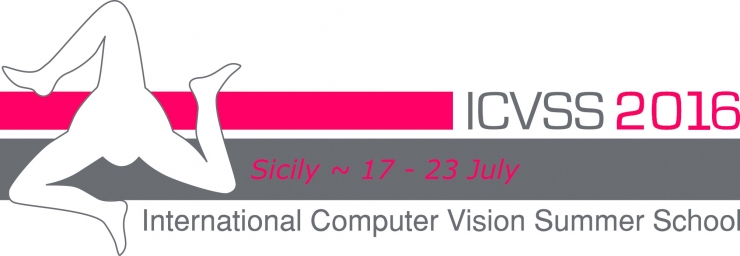
ICVSS - International Computer Vision Summer Symposium
At 7.23, the ICVSS2016—the 10th International Summer Symposium on Computer Vision ended in beautiful Sicily, Italy.
This year's ICVSS theme is "Computer Vision: What will happen next?"
Computer vision is a technology that the machine can see. ICVSS2016—The 10th International Summer of Computer Vision Conference aims to provide an objective and clear assessment of the current field of computer vision, and to make an in-depth analysis of relevant research in the current field. In this conference, the main concern is: What will happen next in the field of computer vision?
Keynote Speech
During the conference, top academics and industry leaders from academia and industry delivered speeches. Through their own successful experiences, they explained the problems in the field of computer vision from the theoretical and practical levels. Keynote speakers include:
• Michael Black, Max Planck Institute for Intelligent Systems
• Dhruv Batra, Virginia Tech University
• William T. Freeman, MIT CSAIL Laboratory
• Andrej Karpathy | Stanford University
• Koray Kavukcuoglu | Google Deepmind
• Yann LeCun | Facebook FAIR Lab & New York University
• Sergey Levine Berkeley, University of Washington, Google
• Devi Parikh, Virginia Tech University
• Pietro Perona, California Institute of Technology
• Ashutosh Saxena, Stanford University, Cornell University
• Shahram Izadi, Microsoft
• Bernt Schiele, Max Planck Institute for Information Research
• Jamie Shotton, Microsoft Research, Cambridge University
• Stefano Soatto, UCLA
• Antonio Torralba, MIT CSAIL Laboratory
In this article, we will introduce in detail the speeches of several academia and industry leaders at the ICVSS2016 conference and summarize the summary and content for everyone.
The first to share is Yann LeCun (Yan Lecun) from Facebook AI Research & NYU (Facebook FAIR Lab and New York University) . What he shared in the conference is: Deep unsupervised learning: Use common sense to explore the development of AI. Road (Deep Unsupervised Learning: the Road to AI with Common Sense)
Deep learning is the key to the transformation process in computer vision and speech recognition. A lot of work is currently being done to apply deep learning to natural language understanding, conversational system applications, and translations, such as basic vision-VQA and video annotation. However, the vast majority of deep learning uses advanced human annotation data for training. Yann believes that the training of super-deep learning systems allows them to gain experience similar to common sense, which requires deep learning systems to learn in “natural†data that has not been marked by humans. Can machines learn natural knowledge and real-world parameters like young animals or humans?
For the AI ​​research field, this is the challenge for the next time. In the speech Yann will mention some research techniques and methods that hope to solve these problems.
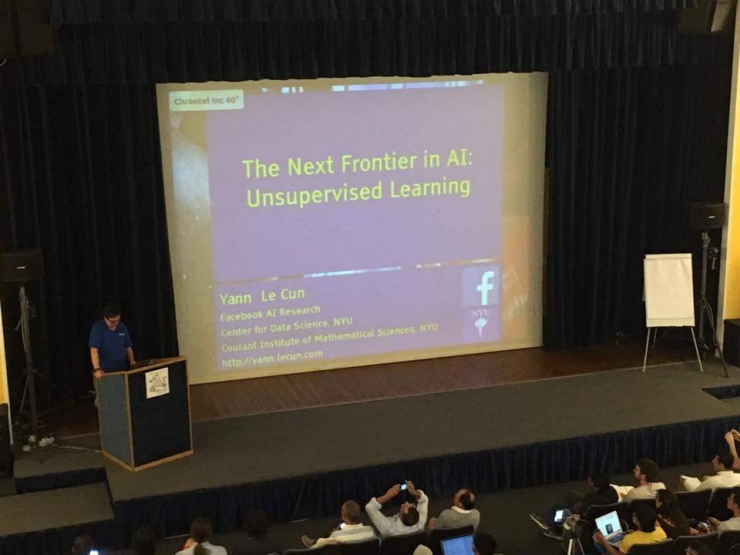
Koray Kavukcuoglu from Google DeepMind , who shared in the conference: Deep Learning for Agents
In recent years, deep learning has improved or nearly replaced many issues related to standard visual, speech, and natural language processing approaches to supervising benchmarks. At the same time, advances in the deep reinforcement learning model also make it possible to train agents using end-to-end methods to solve complex tasks. However, the most challenging issue is how to allow agents to completely understand their environment without direct guidance or reporting.
In this speech, Koray Kavukcuoglu first introduced several methods of deep reinforcement learning. These methods can achieve the best results currently on the agent benchmark. Koray Kavukcuoglu then specifically talked about the recent research results in the universal image and video model. Finally, Koray Kavukcuoglu discussed with the audience the future direction of development in the deep learning and general agent models.
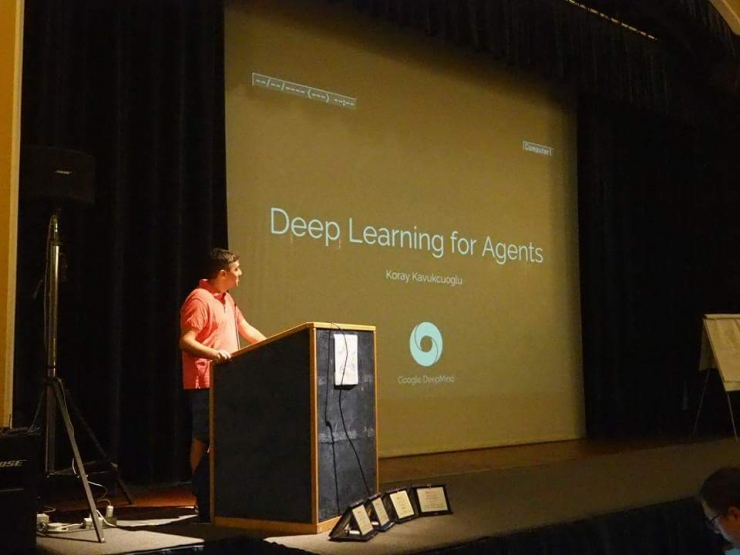
William T. Freeman from the Computer Science and Artificial Intelligence Laboratory at the Massachusetts Institute of Technology in CSAIL shared: Seeing tiny motions, using sound to learn vision (Seeing tiny motions, and using sound To learn about vision)
The world is full of tiny movements that can be visualized to help predict mechanical failures, study physical or biological processes, or diagnose diseases. In his speech, William T. Freeman introduced a motion microscope they developed and used its output examples to demonstrate.
Motion produces sound that can lead a researcher to infer the material properties of the object that produced the sound. William T. Freeman also introduced work on "visual representation of sound", which can be used to help train the visual system to infer the material properties of objects.
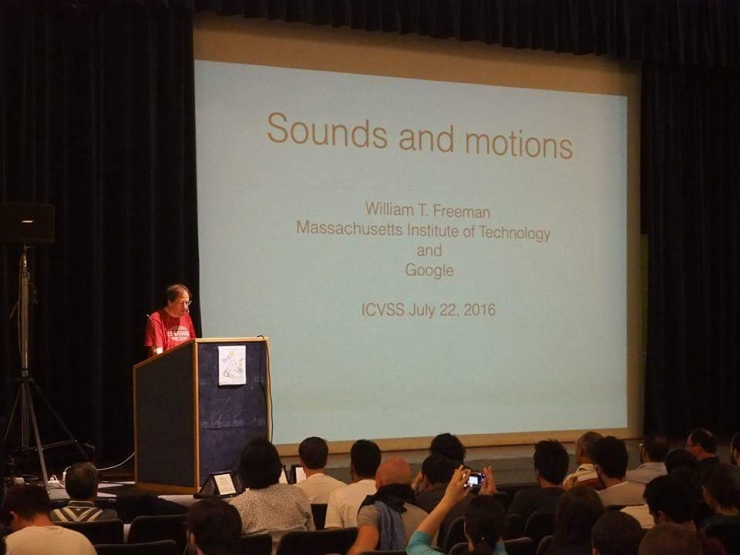
Best paper
The conference selected two best papers:
Convolutional Two-Stream Network Fusion for Video Action Recognition (Convolutional Dual Stream Network Fusion for Video Motion Recognition)
Robust Visual SLAM Across Large Time Lags (Robust Vision SLAM Algorithm Over Large Time Delay)
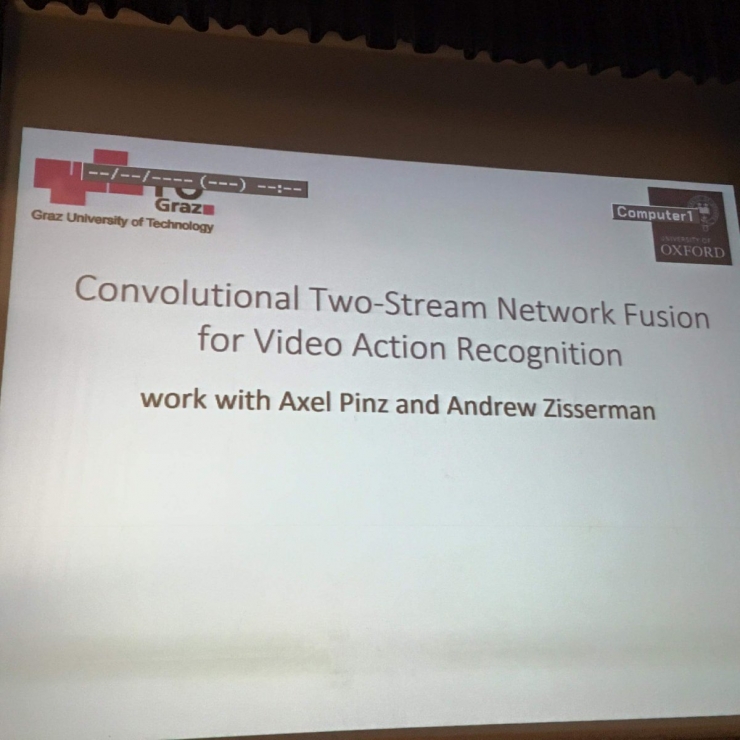
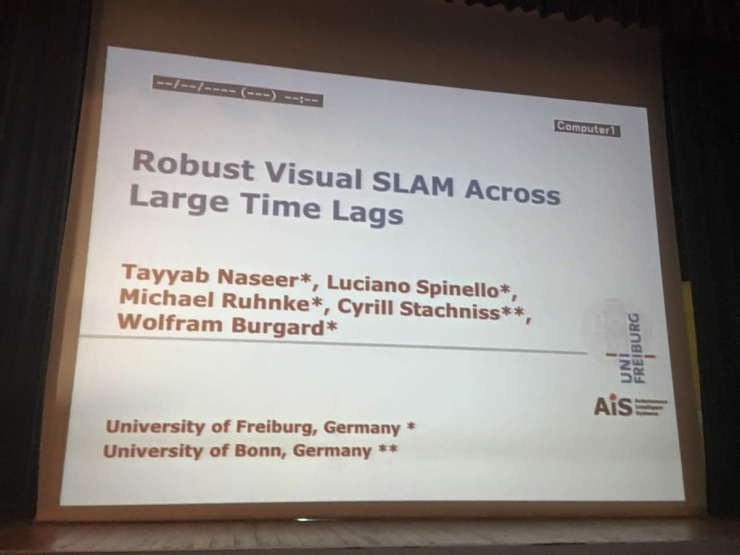
Special Seminar - When Industry Meets Academic
In addition, a seminar was organized specifically for the academic project conference to provide students with the opportunity to interact, communicate, and learn with the world's top laboratories and industry leaders in the field of computer vision. The laboratories and companies participating in the industry discussions include:
• Facebook Ai Research | Facebook AI Labs, USA
• Google DeepMind, | Google Deepmind, United States
• Microsoft Research Cambridge|Microsoft Cambridge Research Institute, UK
• OSRAM Corporate Technology|Osram Technology Group, Germany
• Qualcomm Research | Qualcomm Research Institute, Austria
• Rakuten|Rakuten Corporation, Japan
• Toyota Research Europe|Toyota European Institute, Belgium
• Toshiba Research Europe|The Toshiba European Institute, UK
• Xerox Research Centre Europe | Xerox European Research Center, France
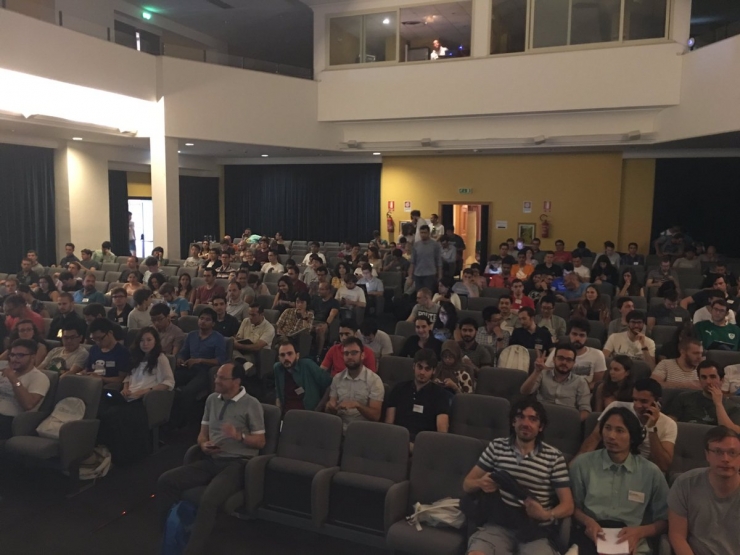
For the best papers and other keynote speeches at the ICVSS2016 conference, please continue to follow the follow-up reports.
PS : This article was compiled by Lei Feng Network (search “Lei Feng Network†public number) and it was compiled without permission.
Via ICVSS2016 Twitter